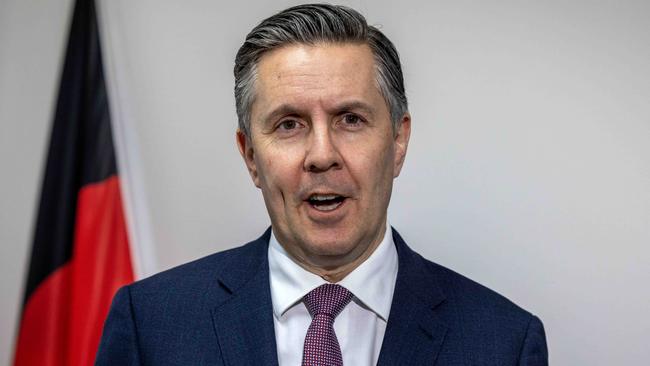Revealed: Aussies who miss out on half-price medicines
The government’s promise of two prescriptions for the price of one is not proving true for patients. See who misses out.

Illness
Don't miss out on the headlines from Illness. Followed categories will be added to My News.
Exclusive: General patients will not get the promised two scripts for the price of one under the federal government’s new 60 day script policy because of a quirk in the nation’s complicated drug subsidy scheme.
Ninety medicines for heart conditions, Crohn’s disease, high cholesterol, osteoporosis and high blood pressure became available on 60 day scripts on September 1, up from 30 days.
Announcing the start of the policy, Health Minister Mark Butler promised “millions of Australians living with an ongoing health condition will be able to get two months’ worth of medicine for the price of one”.
News Corp can reveal that while this may be true for pensioners and concession card holders it is not the case for general patients whose medicines cost less than $30.
Health Minister Mark Butler’s office has confirmed that rather than being “two for the price of one”, the 60 day script policy instead applies a price ceiling of $30 for two month’s supply of medicine for general patients.

The cost of a PBS medicine is made up of the cost of the drug itself and a series of dispensing fess worth more than $17 paid to the chemist.
Under the new policy, when a drug cost less than $30, general patients will still have to pay for two packets of the drug even though they only have to pay the chemist one dispensing fee for two month’s supply.
This means they won’t be getting two scripts for the price of one.
The Department of Health has confirmed three out of four of the 90 drugs that became “half price scripts” on September 1 cost less than the maximum patient charge of $30.
At full price, pharmacies customers might only save $10-$15 when they get 60 day’s supply of these medicines.
For example, heart failure drug bisoprolol used to cost $22.95 per month and previously a patient would have paid up to $45.90 for two one month scripts of the 2.5mg strength tablet.
In the new 60 day prescription environment the maximum a patient will pay is $28.22 for the two month supply.
This represents $17.68 in dispensing and other fees paid to the chemist plus two packets of the medicine which costs $5.31 per pack ($10.62).
So rather than get two packets for the price of one at $22.95, the customer is paying $5.31 more.
The customer will save $17.68 every two months, or $106.08 per year but they will not be getting two scripts for the price of one.
The other reason general consumers won’t get half price medicines is that pharmacies can discount the price at which they sell these under $30 medicines and when that discount is very large the two for the price of one rule also won’t apply.
For example, at Chemist Warehouse bisoprolol 2.5 mg costs just $7.99 per month (only one third the cost charged at a full price pharmacy) and the customer will still have to pay $15.98 for two month’s supply and make no saving at all on 60 day scripts because their total bill for two months supply is still less than $30.
“For patients without a concession card, pharmacies can choose to provide a discount on medicines that are priced under the maximum co-payment of $30, potentially delivering even cheaper medicines than a full price 60-day prescription would deliver,” Mr Butler explained
Customers of discounting pharmacies will still benefit from being able to get 60 day’s worth of medicine instead of 30 days.
They will need half as many trips to the pharmacy and doctor, but they won’t save any money.
Mr Butler said because discounting of medicine prices depends on the discretion of the pharmacy the size of the discount varies from time to time and from pharmacy to pharmacy and this would affect how the 60 day dispensing rules affected consumers.
The Pharmacy Guild of Australia has been fighting the policy because it will cost chemists money and it has engaged a Kings Counsel to investigate suing the government.
More Coverage
Originally published as Revealed: Aussies who miss out on half-price medicines





